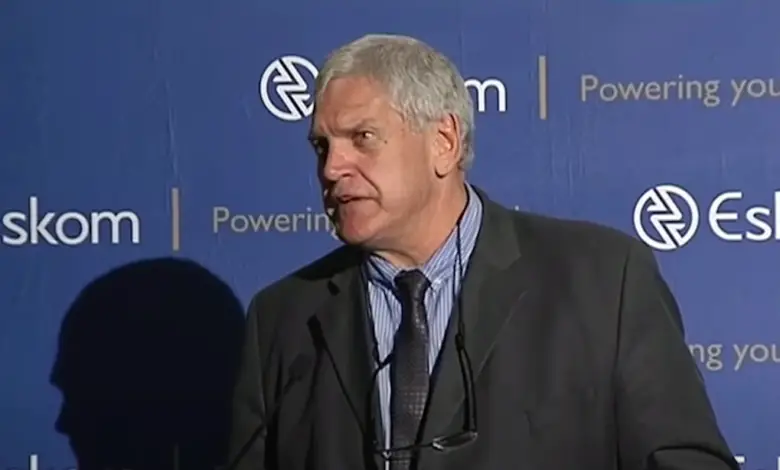South Africa faces another 18 months of regular power cuts: Eskom chief operating officer Jan Oberholzer said

South Africa faces another 18 months of regular power cuts and won’t be able to end them until sufficient generating capacity is added to the electricity grid to meet demand
Eskom chief operating officer Jan Oberholzer said.
SOURCE | BusinessTech
_____
South Africa faces another 18 months of regular power cuts and won’t be able to end them until sufficient generating capacity is added to the electricity grid to meet demand, Eskom chief operating officer Jan Oberholzer said.
“We need another year or year-and-a-half to get out of this,” Oberholzer said at the Agri SA conference near Johannesburg on Thursday. “We are going to go through a tough time over the next year and a half.”
Work that Eskom has done to alleviate the country’s energy crisis will help ensure the situation won’t be as dire as it might have been. Still, it may be necessary for the utility to take a “bold step” and implement so-called Stage 2 load-shedding — in which 2,000 megawatts are cut from the national grid — for a lengthy period to enable Eskom to carry out necessary maintenance, he said.
“People can then plan accordingly,” Oberholzer said.
Eskom will halve the amount of power it removes from the national grid to 1,000 megawatts from 16h00 on 14 October.
Before that, the utility will continue to cut 2,000 megawatts from 16h00 until midnight on Wednesday and Thursday, according to a statement on Twitter. It will publish a further update on the afternoon of 14 October
“To the extent possible, Eskom will endeavour to limit load shedding to night-time to have minimal impact on the economy and population,” it said.
Eskom will sign the first contracts to lease land to five independent power producers on Friday (14 October) so that they can develop renewable energy projects, the utility said.
The company in June announced it had selected 18 companies to lease sites at its power plants. The bids for about 4,000 hectares are ultimately for projects expected to realise 1,800 megawatts of renewable energy capacity.
CHECK> Eskom Loadshedding Outlook for the rest of the year
Inconvenient truth
Citizens are angry over the nation’s record power cuts, and politicians are seeking to deflect blame for a crisis that’s been a quarter century in the making.
Stung by criticism, South African President Cyril Ramaphosa raced home from Queen Elizabeth’s funeral in the UK, cancelling plans to travel on to United Nations meetings.
An announcement followed that the board of state power utility Eskom had been replaced, and an ambitious efficiency target for its predominantly coal-fired plants was set. Action had been taken.
Yet, in the government’s pronouncements on the crisis, some inconvenient facts have been omitted.
In 1998 the government, led by the African National Congress, then as it is now, ignored warnings from Eskom that new plants needed to be built. In 2014 Ramaphosa, then deputy president, was tasked with turning around the utility, after power cuts had begun in 2008.
Pravin Gordhan, the public enterprises minister who replaced Eskom’s board, has held the portfolio since 2018 and took no action while the number of directors at the utility shrank to seven from a stipulated 13.
Energy Minister Gwede Mantashe, a former coal mine unionist, has dragged his feet on allowing more renewable energy plants to be built by private companies and has publicly undermined Eskom’s management.
A target for each of the plants to generate electricity 75% of the time, as opposed to less than 60% currently, is improbable, industry experts say, citing years of skimping on maintenance. A swath of privately built solar and wind plants will take about two years to start generating power.
The blackouts aren’t ending any time soon.
The end.
_____
You may also read> South Africa’s 15 best Universities in 2023
_____




